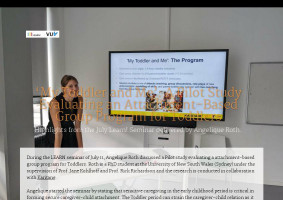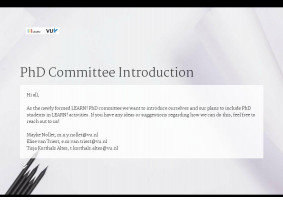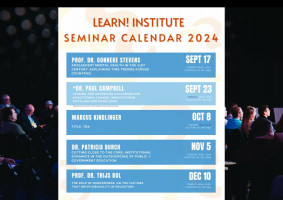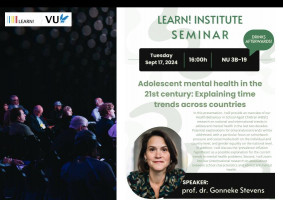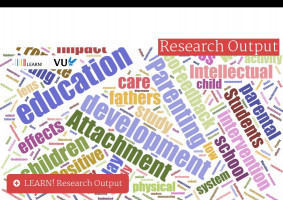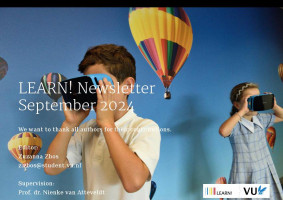During the LEARN seminar of July 11, Angelique Roth discussed a Pilot study evaluating a attachment-based group program for Toddlers. Roth is a PhD student at the University of New South Wales (Sydney) under the supervision of Prof. Jane Kohlhoff and Prof. Rick Richardson and the research is conducted in collaboration with Karitane.
Angelique started the seminar by stating that sensitive caregiving in the early childhood period is critical in forming secure caregiver-child attachment. The Toddler period can strain the caregiver-child relation as it is characterized by increased child autonomy and limit-testing. Therefore, the toddler period is an optimal time for attachment-focused intervention to support caregiving sensitivity and to strengthen the attachment relationship.
The program "My Toddler and Me" is an attachment and behavior-focused parenting program for toddlers of 12-24 months. Two key assumptions of the program are:
- Toddlers have trouble regulating emotions and need caregivers to coregulate
- Disruptive behavior is not deliberate.
The program is based on the parent-child interaction therapy – toddler (PCIT-T) intervention model and uses a mix of didactic teaching, group-based discussion, role modelling and live coaching.
The original program is delivered with the therapist and one parent-child dyad and there is live parent coaching in clinic or via videoconferencing. This is a resource-intensive intervention and group programs offer a cost-effective alternative. PCIT-T is yet to be delivered in group based program. Across 2023 and 2024, the my toddler and me program was piloted at two of Karitane’s integrated care hubs.
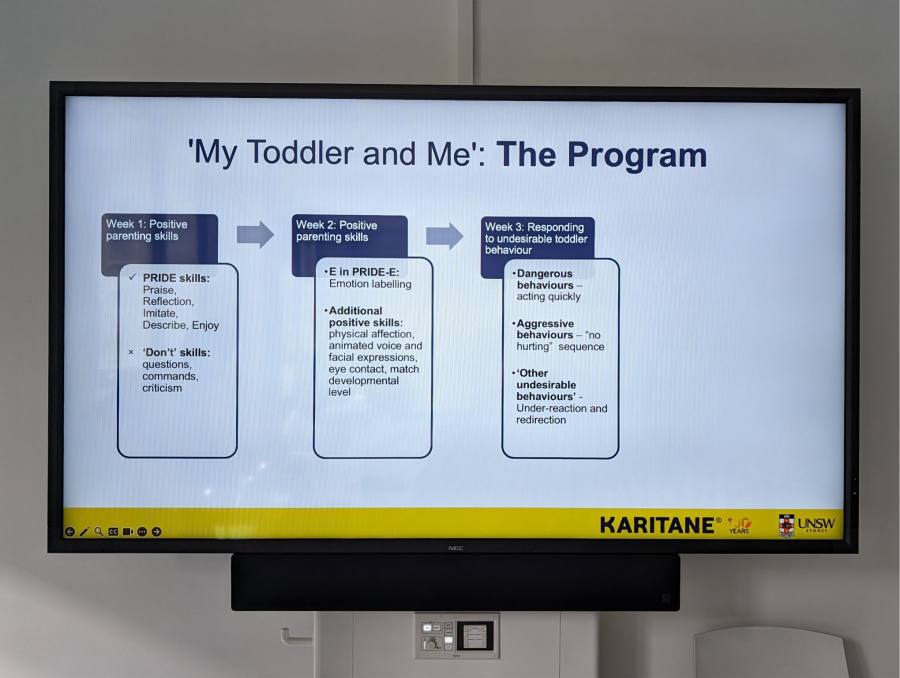
To evaluate the program a within-subject design was used. Pre- and post-outcomes on parent-report measures were administered and semi-structured interviews with parents were conducted. Participating caregivers (mostly biological mothers from culturally and linguistically diverse backgrounds) attended the groups and the aim was to evaluate the outcomes and to explore caregivers perceptions.

Quantitative results showed an improvement on several parenting variables and increased child social-emotional functioning. More specifically, there were increases in caregiver empathy and understanding of child emotions, decreases in caregiver perceptions of child behavior as problematic and in caregiving helplessness and increases in child social-emotional functioning. Qualitative results showed that caregivers also reported several positive outcomes in post-intervention interviews including better understanding their child’s needs and increased affection from their children






